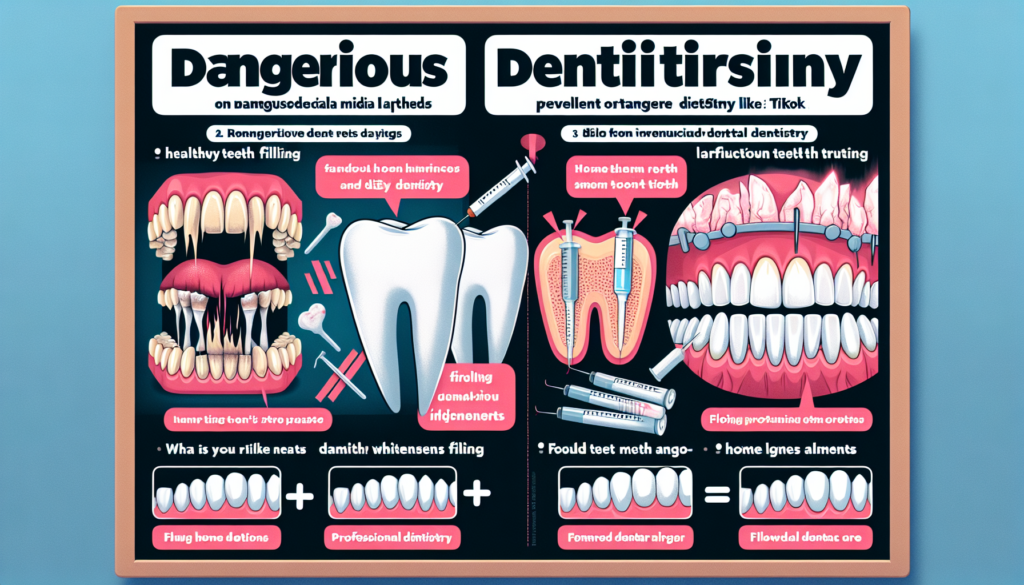Bad Oral Habits You Must Stop Now for Healthy Teeth
Just like small daily habits can transform your life, consistent dental habits can create a lifetime of confident, healthy smiles. Learn more in The Habit Method.
Introduction
Your smile is one of the first things people notice—and yet, many of us unknowingly engage in bad oral habits that slowly damage our teeth and gums. While skipping the occasional brushing or chewing on a pen cap may seem harmless, these small actions accumulate into serious dental problems over time, such as weakened enamel, gum disease, or even tooth loss. Recognizing these oral hygiene mistakes is the first, crucial step toward healthier teeth and gums.
Why Bad Oral Habits Damage Your Teeth and Gums
Our teeth and gums are resilient, but they can only withstand so much. The more we expose them to harmful habits, the faster conditions like cavities, enamel erosion, and periodontal disease can develop. Weakening the outer layer (tooth enamel) increases the risk of decay and sensitivity, while poor daily habits can undermine gum health, leading to inflammation and bone loss. Left unchecked, these issues can compromise both your oral and systemic health.
Common Bad Oral Habits You Must Avoid
1. Teeth Grinding (Bruxism) and Its Effect on Enamel
Millions of adults unknowingly grind their teeth during sleep due to stress, anxiety, or sleep disorders. This condition, known as bruxism, wears down enamel, flattens tooth surfaces, and may cause jaw pain or headaches. Severe cases may even lead to cracked or fractured teeth.
— American Academy of Oral Medicine: Bruxism can significantly damage teeth if untreated.
2. Nail Biting and Its Hidden Dental Risks
Beyond being unsanitary, nail biting creates micro-cracks in enamel, increases the risk of chipped teeth, and can introduce harmful bacteria into the mouth. Over time, the pressure may even cause tooth misalignment, altering your bite.
3. Using Teeth as Tools (Opening Packages, Biting Objects)
Your teeth are designed for chewing food—not tearing tape or popping bottle caps. Using teeth as tools can cause chipped teeth, fractures, and enamel wear, sometimes requiring costly dental restorations.
4. Chewing Ice or Hard Foods
Chewing ice cubes—or other hard objects like pens or hard candy—can lead to tooth fractures, enamel erosion, and sensitivity. Many patients developed cracked fillings or broken crowns simply from this habit.
— Journal of the American Dental Association: Excessive force from chewing hard substances weakens enamel.
5. Poor Brushing Habits
Brushing your teeth too hard, skipping sessions, or using the wrong toothbrush leads to gum recession, enamel abrasion, and plaque buildup. Over-aggressive brushing can damage more than it cleans.
- Always brush twice daily for two minutes.
- Choose a soft-bristled toothbrush.
- Practice gentle, circular motions instead of scrubbing side to side.
— American Dental Association recommends brushing gently and consistently.
6. Overconsumption of Sugary Drinks and Snacks
Frequent snacking on soda, candy, or processed foods exposes teeth to sugars that fuel cavity-causing bacteria. This leads to acidic plaque, enamel demineralization, and cavities. Even fruit juices and sports drinks hide sugars that harm your oral health.
7. Smoking and Its Impact on Oral Health
Smoking is one of the most destructive habits for teeth and gums. It causes staining, gum disease, delayed healing, and increases the risk of oral cancer. According to the CDC, smokers are twice as likely to lose their teeth as non-smokers.
Healthier Alternatives to Break Bad Oral Habits
- Teeth Grinding: Manage stress with meditation, exercise, or speak with your dentist about a custom night guard.
- Nail Biting: Keep nails trimmed, use bitter-tasting nail polish, or occupy your hands with a stress ball.
- Using Teeth as Tools: Keep scissors, bottle openers, or cutters handy so you won’t rely on your teeth.
- Chewing Ice: Switch to sugar-free gum or chilled water to satisfy cravings safely.
- Poor Brushing: Set reminders and follow ADA-recommended brushing techniques with fluoride toothpaste.
- Reducing Sugar: Choose healthier snacks like cheese, nuts, and crunchy vegetables which naturally clean teeth.
- Smoking: Seek professional cessation support, nicotine replacement, or counseling to quit successfully.
Expert Tips for Maintaining Healthy Teeth and Gums
- Brush and floss consistently: Twice daily brushing and nightly flossing reduce cavities and gum disease.
- See your dentist: Biannual checkups enable early detection and prevention of issues.
- Fluoride support: Use fluoride toothpaste and mouthwash to strengthen enamel and lower cavity risks.
- Hydration: Drink water throughout the day to neutralize acids and wash away bacteria.
- Balanced diet: Eat foods rich in calcium, phosphorus, and vitamin D for stronger teeth.
Conclusion: Protect Your Smile by Stopping Bad Oral Habits Today
Your everyday choices matter. Habits like teeth grinding, nail biting, ice chewing, and smoking can silently undermine your long-term oral health. By making small, consistent improvements now, you can prevent dental problems, protect your enamel, and enjoy a healthy smile that lasts a lifetime.
Remember—prevention is always easier than treatment. Start today by choosing better daily habits and partnering with your dentist for professional care. For more on building lifelong healthy behaviors, explore The Habit Method.
Frequently Asked Questions (FAQ)
1. Is occasional nail biting really bad for my teeth?
Yes—while occasional nail biting may seem harmless, even small amounts of pressure can chip enamel, introduce bacteria, and increase your risk of tooth misalignment over time.
2. How can I tell if I’m grinding my teeth at night?
Common signs include jaw pain, headaches upon waking, worn or flattened teeth, and sometimes your partner may hear grinding noises during sleep. A dentist can confirm bruxism with an oral exam.
3. Are sugar-free sodas safe for my teeth?
Not entirely. While they don’t contain sugar, many sugar-free sodas are acidic, leading to enamel erosion. Water is the safest alternative for your oral health.
4. What’s the best toothbrush for preventing enamel damage?
A soft-bristled toothbrush, used in gentle circular motions, is most effective. Electric toothbrushes are also beneficial for consistent pressure and time control.
5. How often should I see a dentist if I don’t have pain?
Even without pain, a dental visit every six months is essential. Many oral health problems develop silently, and routine exams catch them while they’re still reversible or easily treated.
Post Disclaimer
DentalUp is for educational purposes only and cannot accept personal dental information such as x-rays, photos, or treatment details. See full disclaimer here.





